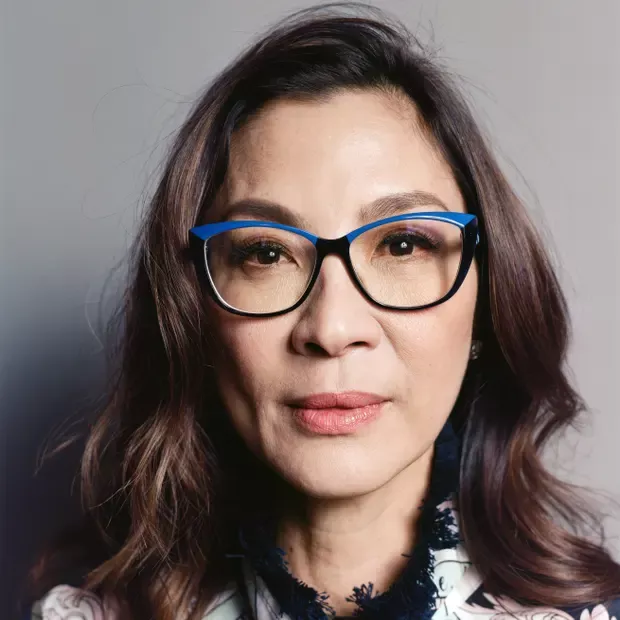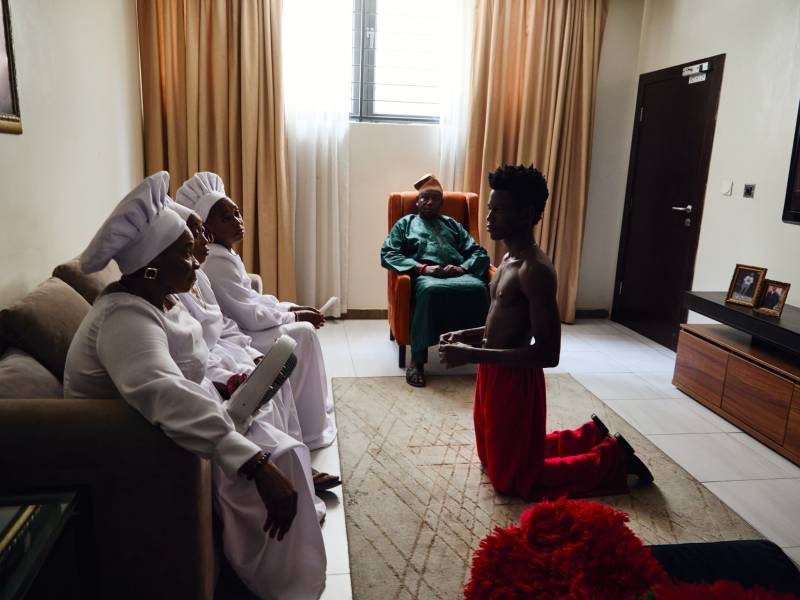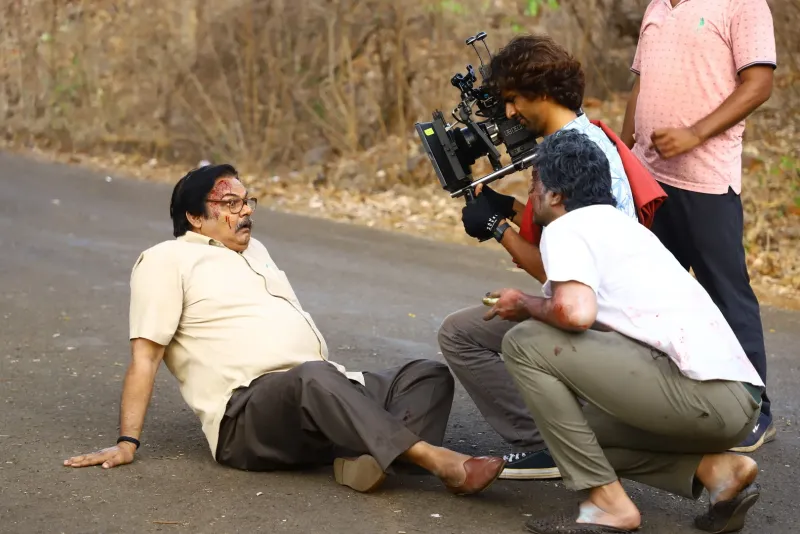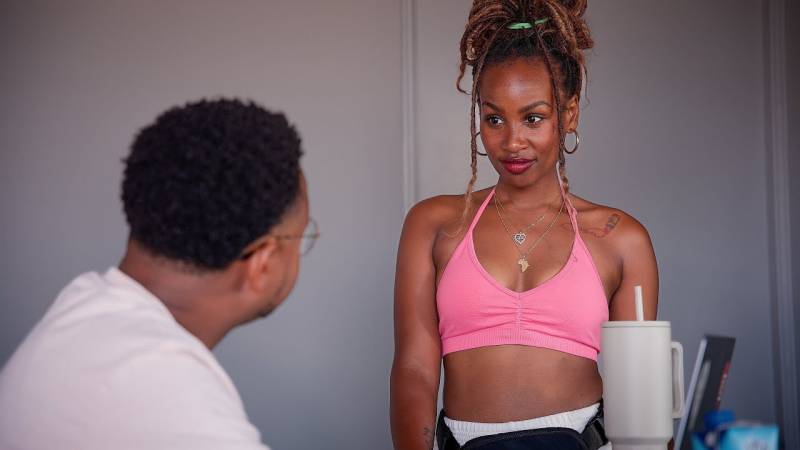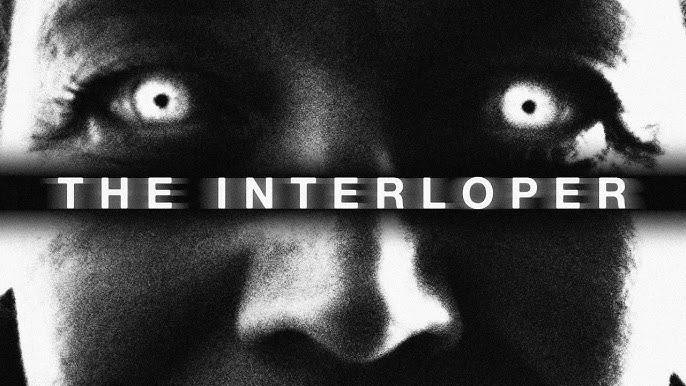It was the butt-plug fight sequence that finally broke her, says Michelle Yeoh. Best not to spoil the surprise any further, but her new comedy, Everything Everywhere All at Once, throws the veteran actor into a multitude of absurd and unorthodox situations: downing a whole bottle of orangeade then copiously throwing up; having hotdogs instead of fingers; spanking the co-director, Daniel Scheinert, in an S&M get-up. And she loved every minute of it. “I was doing things that I never dreamed of doing!” Yeoh enthuses over a video call from Los Angeles. “But it was never too much.” Until, that is, it came to shooting the kung fu fight with two half-naked male assailants and some dauntingly large sex toys. “When we were doing the butt-plug fight sequences, I was just on the ground, laughing my head off, going like: ‘Oh my God! Would I have ever thought that one day I would be doing this kind of martial arts?’”
Everything Everywhere All at Once is the role of a lifetime for Yeoh. Several lifetimes, in fact. Directed by the duo known as the Daniels (Scheinert and Daniel Kwan), it is a movie as expansive, ambitious and all over the place as its title suggests, zipping across alternate universes, crammed with bizarre action, surreal comedy and manic family drama, but also tackling concerns existential and philosophical. It is a film that can barely contain its over-ripe imagination – think a cross between The Matrix, Michel Gondry and Stephen Chow, with homages to everything from 2001: A Space Odyssey, to In the Mood for Love, to Ratatouille thrown in.
But the maximalism seems to have struck a chord with our age of accelerated incident, digital overload and black holes of despair. Already, it has become the stuff of cult word-of-mouth and repeat viewings. One critic wrote: “It’s a movie that I saw twice just to make sure I hadn’t completely hallucinated it the first time around, and one that I will soon be seeing a third time for the same reason.”
Yeoh plays Evelyn Wang, a dowdy, put-upon Chinese-American laundromat-owner, struggling with her tax returns, struggling with her marriage, struggling to bond with her lesbian daughter (Stephanie Hsu). But then her husband (Ke Huy Quan), or a version of him, informs Evelyn she is the key to saving the world – not because she is “the one”, but because she is the most failed version of herself in the multiverse: “You’re your worst you.” Somehow, this enables her to access the skills of all her other selves, from opera-singing to martial arts to weapons-grade placard-spinning. This isn’t the half of it. It is one of those films that takes as long to explain as it does to watch, but it brings its labyrinthine madness to a satisfying conclusion.
Shooting the story out of sequence, Yeoh had her work cut out simply understanding where and who she was from one day to the next. “Every day, I would go in and say: ‘I have no clue what’s going on today,’” she laughs. There are several moments in the movie when Yeoh is pictured in closeup, screaming, as her character flips through dozens of alternate versions of herself. Essentially, Yeoh explains, it involved standing in front of the camera screaming “Aaaaaah!” in different costumes. “The Daniels would say: ‘That’s the perfect expression. Do that confused look!’” she says. “And I’m like: ‘This is my natural reaction.’ It didn’t need any acting chops for that.”
The role fits Yeoh like a glove, though. In her one life, she has acquired many of the skills Evelyn accesses from her other selves. There is the kung fu and action heroism, of course. This is a woman who once stunt-jumped a motorcycle on to the top of a moving train, for real. She is fluent in English, Cantonese and Mandarin. She has played everything from a Bond girl (Tomorrow Never Dies) to a political heroine (Aung San Suu Kyi in The Lady), a dragon matriarch (in the hit romcom Crazy Rich Asians) to a Star Trek captain (in Star Trek: Discovery). Besides that, she has been a ballet dancer, a beauty queen, even a dutiful wife (although that didn’t last long).
Yeoh is surely the greatest female action star in cinema history. Even though she is still doing action movies in her 60th year, leading roles such as this don’t often come along for women, she says. “You get to that stage in your life and your career where you feel: ‘I’m being sort of overlooked here,’ because you are now relegated to these kinds of [minor] roles. The guys seem to be doing it. They’re still like superheroes in their 60s and 70s. Why does a woman not get the opportunity to be that?”
The Daniels readily admit that if Yeoh had turned down the part, they would have had to start from scratch. They also admit, however, that their original idea was to make the husband the protagonist and to cast Jackie Chan, with Yeoh playing his wife. When Chan was unavailable, “something clicked”, the Daniels say, and they realised the story would work much better with the wife as the lead.
Chan and Yeoh are old friends; in fact, he was Yeoh’s first co-star, in a 1984 commercial for a Hong Kong watch brand. There has always been a competitive element to their relationship, it seems. “Jackie actually texted me,” she says. “And he says: ‘Wow, I hear amazing things about your movie. Did you know that the boys came to see me in China?’ And I said: ‘Yes, your loss, my bro!’”
Born to a well-off Malaysian family, Yeoh came to London to study ballet in her teens, until a back injury closed that career option. She was planning on opening a ballet school in Malaysia, but then won Miss Malaysia 1983, at 20, and decided to try her luck in the Hong Kong film industry. Initially, she was cast as a token pretty girl, but she quickly figured, with her dancer’s training, that she could do action just like the men. Soon, she was leading action movies such as 1985’s Yes, Madam!, in which she and Cynthia Rothrock dispatch hordes of male hoodlums, smashing most of them through panes of glass.
Just as her career was going places, Yeoh unexpectedly retired from acting after marrying her producer, Dickson Poon, in 1987. They divorced five years later, after which she threw herself back into it, literally. She partnered with Chan in his hit action comedy Police Story 3: Supercop, which is where she did the motorcycle jump on to the train (she didn’t know how to ride a motorcycle, she says). She also leapt off the top of a truck on to the bonnet of a car driving behind, but slid off and fell into the road. She could have died, but she got up and did the stunt again straight away – and got the shot. Apparently, Chan felt upstaged by Yeoh’s intrepidity, so he devised an even riskier helicopter stunt for himself.
Health and safety was not exactly to the fore in those days. “If you jumped off something, you were lucky if you had mattresses and some cardboard boxes [to break your fall]. And then all the wire work was done on wires that were thin enough that you couldn’t see with the naked eye, because we didn’t have CGI; we couldn’t erase them after.” These wires were known to snap on occasion. “I don’t miss the danger or the risk of it,” she says. “But it gave us such an incredible way of creativity.”
Yeoh was part of a wave of Hong Kong talent that reinvigorated Hollywood action cinema in the 1990s, along with the likes of Chan, Jet Li, Chow Yun-fat and the directors Tsui Hark, Corey Yuen and John Woo. Not to mention the fight choreographer Yuen Woo-ping, who had a hand in The Matrix movies (Yeoh turned down a role in the sequels), Quentin Tarantino’s Kill Bill and Ang Lee’s crossover hit Crouching Tiger, Hidden Dragon, in which Yeoh combined action dynamics with dramatic restraint to powerful effect.
Yeoh’s own Hollywood crossover came via a different route: James Bond. “I was there at the right place at the right time,” she says. Yeoh was a different kind of Bond girl in Tomorrow Never Dies: the Chinese agent who is immune to Bond’s seduction techniques and more than a match for him in the combat stakes. (The acting ones, too, you might say.) Again, Yeoh did all her own stunts and stole the show. Some critics suggested she would make a better Bond than Pierce Brosnan. Clearly, she could have kicked his butt, right?
“We had to find a balance,” she says. “Because, at the end of the day, I am a guest in the James Bond world. You can’t just come in and take over everything. But for them to have a character who was equally as important as James Bond – it’s respect as well. I love the fact that he would step back and go like: ‘I’ll watch you fight,’ you know? It’s kind of pretty cool to have a woman with those kind of abilities.”
She could have kicked his butt though, couldn’t she?
She laughs. “I would never do that! I love the way you think, though.”
Making Everything Everywhere All at Once took Yeoh back to her Hong Kong days, she says. Marvel has hundreds of millions of dollars to render its multiverse stories, but this movie had a fraction of that (an estimated $25m) and just eight weeks’ shooting time. Fortunately, the Daniels, who came out of music video production, are well accustomed to stretching budgets and finding ingenious workarounds.
In addition, they created a collaborative, communal atmosphere on set. Every day began with silly warmup exercises for the whole cast and crew. It felt more like summer camp than a movie set, she says. “That’s the magic of moviemaking, because it’s coming from here [she points to her head] and from here [she points to her heart]. It’s not like: ‘Oh, we’ll just sit back and let the CGI people take over,’ because we didn’t have the luxury of that. But we had the passion.”
In a teasing bit of self-reflexivity, one of Yeoh’s character’s alternate selves in Everything Everywhere is a famous movie star. To establish this persona, the film craftily incorporates real-life news footage of Yeoh attending red-carpet premieres in glamorous couture (as she has just done at the Met Gala, days before we speak). If Evelyn is the worst version of herself, as the film has it, surely, by implication, Yeoh is living her best life?
It is not that simple, Yeoh says. The movie-star version of Evelyn in the film is successful, but miserable. She never married or had a daughter. “When Evelyn comes back [from that persona], the first thing she looks for is: ‘Where’s my daughter?’ And she doesn’t have a husband. She doesn’t have these kinds of love, right? That’s when she realises her choice has always been her family, and she will not give up on that.”
There is a correspondence with reality here. “I always wanted children, but unfortunately, physically, I’m not able to,” Yeoh says. This is one of the many forks in the road that led to this version of Michelle Yeoh, she acknowledges. “Would my life be different if I had? I don’t sit back and think about that. I am grateful for what I have … I have amazing friends. I have six godchildren, so I’m surrounded by children. And I have the best husband – I would call him my husband – because we have great respect for what we do and our lives and careers are so different.” This is Jean Todt, a former head of Ferrari and now a UN special envoy on road safety. They have been together for nearly 20 years, but are not married. “I’ve lived out of a suitcase for the last three decades. This is the life that I chose and I’m happy doing what I’m doing. I have so much to be grateful for, so I don’t sit and wonder: what if something else happened?”
This is not the final chapter in Yeoh’s career by any means. Coming up are James Cameron’s Avatar sequels (of course, she can’t reveal anything about them); a Witcher spin-off; the fantasy movie The School for Good and Evil; and an adaptation of the graphic novel American Born Chinese. But Yeoh recognises this is a rare moment in her career, the kind of opportunity most actors dream of, even if she didn’t quite imagine it would involve hotdog fingers and butt-plug fights. “I’ve been in the business now for thirtysomething years, right?” she says. “And it feels like I needed all that experience to be able to come to this point and say: ‘All right, I’m going to show you what I made of.’”
Everything Everywhere All at Once is in cinemas from 13 May
